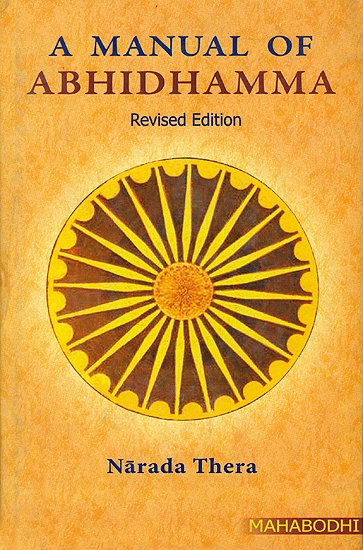Abhidhamma in Daily Life (by Ashin Janakabhivamsa)
by Ashin Janakabhivamsa | 66,666 words
English translation of "Abhidhamma in Daily Life" by Professor Ko Lay. Revised by Sayadaw U Silananda, International Theravada Buddhist Missionary University, Yangon, 1999...
Factor 9 - Karuna (pitta, compassion)
Karuna means great pity for the less fortunate beings. Karuna incites the will to save unfortunate sentient beings, and to alleviate the sufferings of others. When one sees a person in misery, there arises the wish to kelp them. If he cannot do so, he will be uneasy and concerned. This is not true karuna. It is only domanassa (mental suffering) based on pity, which mostly occurs in the hearts of good people. Therefore, although it is a domanassa, this akusala, is not a great evil. This is in fact a natural to good, compassionate people.
Unreal Karuna
Sometimes a man will feel pity for his relatives and friends who are in trouble and wish to save them. Actually, this mental factor is soka (sorrow) and not true pity. Real karuna give rise to pity and compassion whilst the unreal gives rise to worry anxiety.
The Mentality of the Virtuous
All good-natured persons will fell karuna (pity) for the less fortunate ones when they actually see them. However, they will radiate mettá (loving-kindness) only on their friends, relatives and kith and kin. But the true virtuous persons who are fulfilling the ten perfections and those holy persons already accomplished in oaramis particularly the Bodhisattva, have great compassion for all sentient beings feeling greatly concerned for the danger of apaya and ill consequences of their evil deeds falling on them, just as parents feel pity for their poor, suffering children. They can extend their mettá on all sentient beings without discrimination. They can be compared to parents who love their children equally, even the naughty ones.
Mettá and karuna had acquired firm roots in mental and physical continuum of the Bodhisattva in every existence while fulfilling paramis and they became fully matured at the time of Supreme Enlightenment. By virtue of this Gotama Buddha looked upon Mara with unshaken mettá to conquer him when Mara imposed great interference and hindrance on him on the eve of Buddhahood. The Buddha did this by emanating mettá incessantly with supreme forgiveness to Mara who was bent on destroying him. In the same way the Buddha conquered Devadatta who plotted to kill him.
In the present day, those who strive to be virtuous and noble should emulate the good examples of Bodhisattvas. They should reject the concept: “I will be good only to be good.” Instead they should replace it with the attitude: “Although they are bad, I will return only good to them. Whether they are good or bad, I must do them good.” And they should bear in mind to bestow sincere mettá and karuna on everyone.
